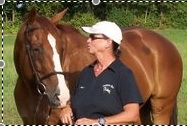 I’m picking up on my last post, in which I discussed Joe Williams’s “Phenomenology of Error,” published in College Composition and Communication in 1982, where he ably demonstrates that even the most erudite language mavens only find errors when they are explicitly looking for them, and thus miss bunches, even in their own work.
I’m picking up on my last post, in which I discussed Joe Williams’s “Phenomenology of Error,” published in College Composition and Communication in 1982, where he ably demonstrates that even the most erudite language mavens only find errors when they are explicitly looking for them, and thus miss bunches, even in their own work.
Williams developed his own rather complicated categories of errors. Of course, he’s an academic writing for other academics, and the essay is more than 30 years old, so his examples may not be the ones we’d pick today if we wanted to duplicate his categories.
But a couple are.
Briefly, his categories are
- Rules we notice and respond to with a shriek when they’re violated. (“Shriek” is my word, equivalent to the reactions from experts Williams notes in his introduction, people who label such things as “OK,” “hopefully,” and “He invited Mary and myself to dinner” as examples of an “atrocity,” a “detestable vulgarity,” and “garbage.”) In this category of noticeable rules, Williams places basic violations of Standard English structure, such as “I seen” and “He don’t.” Note that these locutions don’t impede understanding. They’re perfectly clear, and perfectly acceptable in many contexts. (In some dialects, such as Black English, ways of talking that violate Standard English are actually rules of that dialect, with their own influence over such matters as time and continuity of action. See the resources here and here to understand this point better.)
- Rules we really don’t notice even when they’re violated—despite knowing that the rule exists. Williams specifically offers the that/which distinction, which (see, I used it right) even such eminences as Jacques Barzun cheerfully violated within a page of telling us not to. Later I’ll have a little to say about this rule, since it falls clearly into one of my own categories.
- Rules we notice when they’re observed because they call attention to themselves, a small class. His example is “It is I,” which is indeed “correct” but which jumps off the page at most people. I suspect that “between you and me” is rapidly becoming such a conspicuous instance of correctness (yes, it is correct) for many. I actually heard someone say “between he and I” this morning on a news show. Looks as if the subjective case after a preposition is coming into its own.
- Rules that, when violated, actually elicit a favorable reaction from individuals. Williams offers an example of a rule he actually prefers to see broken: using “than” rather than “from” after “differently” when what follows is a clause and not a noun. I think there are more rules like this, rules that, if broken, improve prose. I’ve already pointed out one possible candidate: choosing to start a sentence with “but” (assuming you think this violates an actual rule). I’ll propose more soon.
This is possibly the best place to remember that languages change. Effort like those the French have made to freeze the language are flung down and stomped on on every street corner, in every hostel. All you have to do is read something written in the 1700s—oh, say, Jonathan Swift’s “A Modest Proposal“—to appreciate how punctuation, spelling, and diction have shifted since then. Students required to read such texts complain mightily about how badly written they are. English is, as we speak, in the process of losing the apostrophe (a vagrant and an intruder to start with).
I actually regret this loss; I’ll horrify my college-writing colleagues by siding just a little with Lynne Truss, author of Eats, Shoots & Leaves, agreeing with her that it might sometimes be helpful to know how many people we’re talking about in a sentence like “The travelers bags will fit in the overhead bins.” A simple apostrophe would tell you, and this Wikipedia article gives more examples of useful clarifications an apostrophe can make. But I am not going to emulate the folly of the French.
I’m approaching the task of establishing my own categories of errors. My main concern is to keep things reasonably simple, and not to get tangled up trying to explain things handbooks or sites like the Purdue Owl explain pretty well. I’ll set up the categories here, and then clarify and defend them in upcoming posts:
- Rules you really don’t need to worry about
- Rules you absolutely must obey
- Rules that are actually judgment calls. Breaking one of these rules (like starting a sentence with “but”) is a gamble. If you absolutely hate what following the rule does to your prose—well, you pays your money and you takes your chance.





